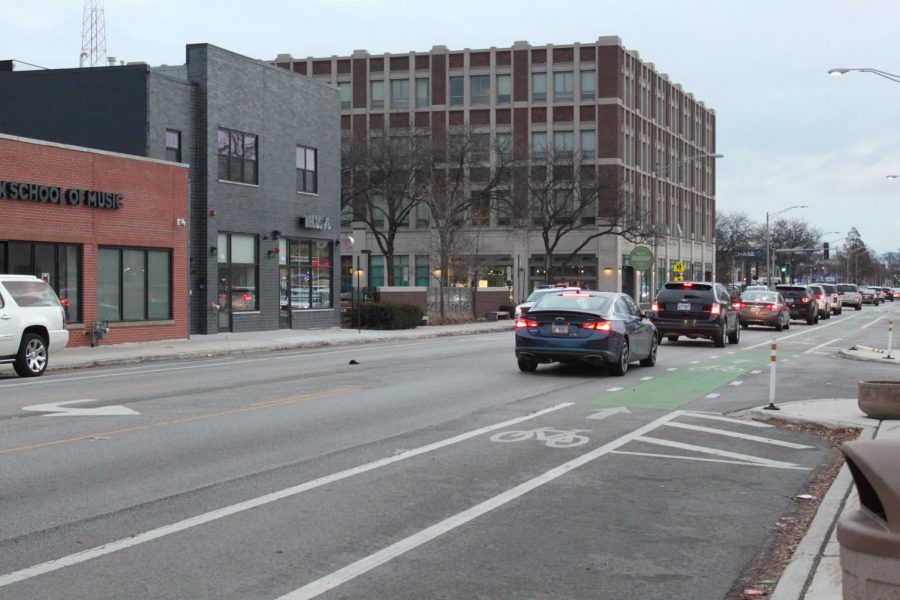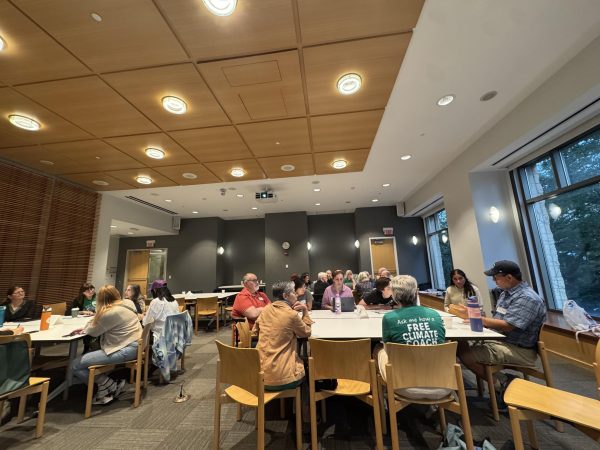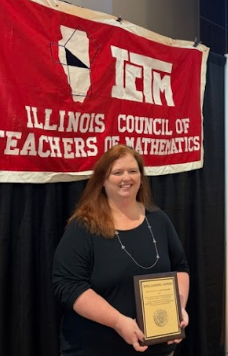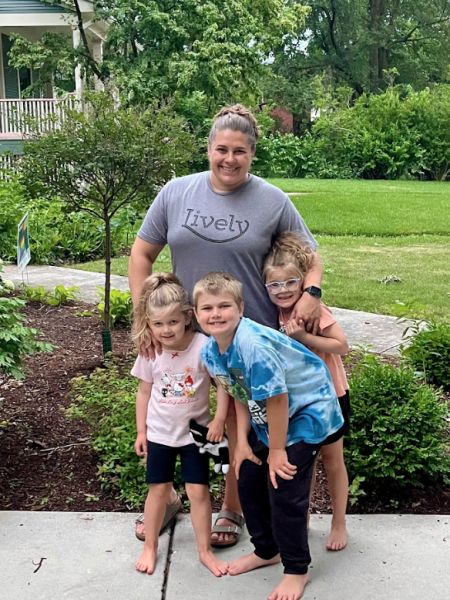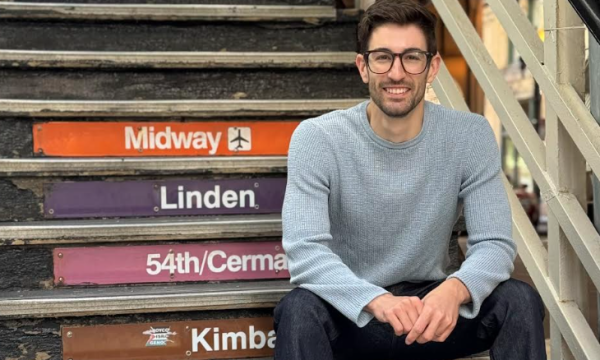South Oak Park grapples with controversial funeral processions
Madison Street, where some funeral processions take place
Business owner David Lipka has been complaining about this issue for years. Resident Elizabeth Debowey says she’s seen these cars swerve into oncoming lanes of traffic. Resident Lauren Frenden said she has seen guns waved outside of the moving vehicles.
Since a Sept. 23 funeral procession in Oak Park that resulted in an off-duty police officer firing his weapon at a vehicle, there have been 53 “rowdy” funeral processions reported by the Oak Park Police Department. As of Dec. 8, the department reports 181 total “rowdy” funeral processions this year.
Most funeral processions in Oak Park occur on Madison Street, Jackson Boulevard, and Roosevelt Road. “The problem is, over the last couple of years, there’s been a trend of some funerals coming from the city that have been termed ‘rowdy’ or ‘high-risk’ because of the behaviors that people involved in the processions are doing, such as reckless driving,” says Commander of the Oak Park Police Department Paul Kane.
Some residents of South Oak Park say they have witnessed this persistent issue for years. “The speed with which the cars swerve around each other, even crossing into lanes of oncoming traffic, makes me legitimately fearful for other drivers who had the misfortune of being on that road at that time,” says Debowey.
Frenden says she has seen these funeral processions on Jackson Boulevard, sometimes during the weekdays while she helps with recess duty at Longfellow Elementary. On one occasion, she said she saw people in the procession with guns. “Many times I have to lead students across Jackson to get to Longfellow park,” she says. “The procession of cars flies down Jackson at top speed. People are hanging out of the windows, and I’ve even witnessed them waving guns.”
To address the issue of disruptive funeral processions in 2018, former Cook County Commissioner Richard Boykin and Cook County Sheriff Tom Dart created a task force made of leaders involved in funeral processions. One of the members of the task force was Bertha Purnell, a Chicago-based community activist who focuses on helping families of victims of gun violence.
“I was working with families who had someone who was killed by gun violence, so I was very involved in planning the funerals and working with the funeral homes,” she says.
One of the goals of the task force was to facilitate communication between the funeral homes, police, and cemeteries. “We need to communicate better to tell people there’s going to be a funeral home coming down roads about approximately this time of day,” Purnell says.
Charles Childs Jr., the funeral director of AA Rayner and Sons Funeral Home, was also a part of the task force. “Some of the recommendations that the task force provided have been under review because of changes in some of the legislative leaders, and some of the task force issues haven’t been implemented,” he says. Part of the task force’s official ending in 2019 was County Commissioner Boykin’s failed reelection.
From Childs’s perspective, many of the funeral processions that become problematic are those for victims of violence. “It could be that (a gang related shooting) or it could be an innocent bystander who may have been struck by violence,” he says.
Commander Kane also sees a correlation between violence and these funeral processions. “As violent crime goes up, and there’s more victims of violent crime, the potential for these types of funerals increase,” he says.
When these funeral processions become dangerous, they affect local businesses, such as Lipka’s Travy’s Tavern on Roosevelt Road. Lipka, the owner, has been complaining to the local government about erratic driving for years. “There’s a lot (of funeral processions) especially on Roosevelt Road. They affect businesses because people are nervous about their parked cars, getting hit, just even driving down the street,” he says.
Lipka is pleased with recent measures by the Oak Park Police Department following a Sept. 23 funeral procession where an Oak Park police officer fired at one of the vehicles. “There have been police in the middle lanes or sitting on the side streets every few blocks to make sure to monitor and make sure that they are not doing this craziness,” he says.
In the future, Lipka wants to see more police presence and possibly “mandatory police escorts.”
“The Village of Oak Park and the Oak Park Police Department takes the idea of public safety very seriously,” says Kane. However, he says, “The streets are the public way, so we can’t just deny access to the street unless there is a defined public risk.”
Without the task force officially still together, funeral homes, police, and cemeteries will rely on communication to try to avoid the processions getting out of hand. “Communication is key. If we want to combat some of these problems, we have to come together to talk,” says Purnell.
Sports Editor Archie Beecroft contributed to this report.

